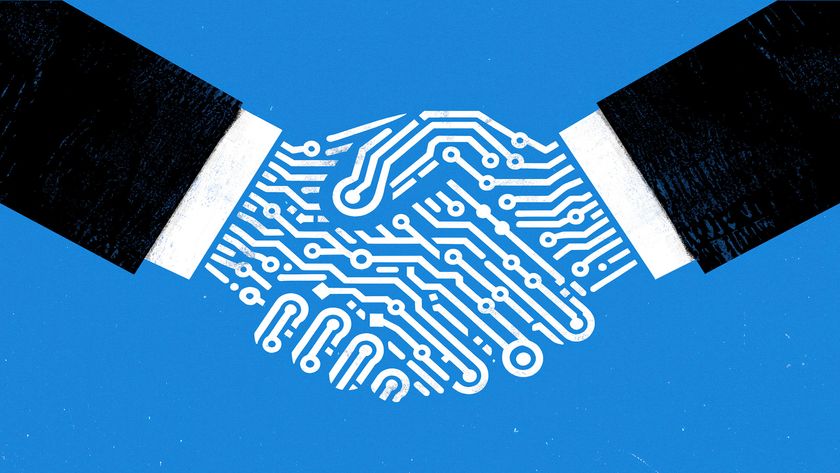Business travel in the 21st century
How to make business travel less painful, more productive
If you're eligible for a fast-track security program like TSA Pre for US citizens (or a UK ePassport), the time you save is worth the cost, but they're only available for your country of residence.
En route
Some people prefer to travel as light as they can and put everything in carry on so they can make a fast getaway when they land. "Pack light ad carry on," advises Microsoft's Frank Shaw who frequently accompanies travelling executives. "But, if you can't pack light, don't carry on."
If you're travelling for longer than a few days, you may prefer to make sure you have everything you need with you. In that case, invest in a hard suitcase with four wheels - so you can push or pull it. If you're going to travel a lot, Samsonite and Delsey luggage is exceptionally hard-wearing. Cable ties are cheaper than TSA-compliant locks, plus if the TSA cuts them off to check your luggage they also replace them.
Keep emergency items in carry on, including medication, because bags get lost and delayed. The new ReboundTAG is an RFID luggage tag that has two chips; one with your details, the other which picks up the same flight details as the new RFID-enabled baggage tags airports are starting to switch to (Hong Kong and Schiphol are the first). That way, if your bag is lost it's easier for the baggage handling company to contact you to get it back.
Look for a carry-on with wheels as well. And make sure it has a comfortable handle or backpack strap for when you want to take the stairs or get through a crowd. Airport security rules change so often you won't always be able to leave a laptop or tablet even in a TSA-approved bag but picking a carry-on with a separate section you can get your laptop out of quickly will save you time.
Lay things out on the security belt in the order you want to repack them and put everything you're going to need on the plane in a smaller bag you can grab quickly when you reach your seat.
Get the ITPro. daily newsletter
Sign up today and you will receive a free copy of our Focus Report 2025 - the leading guidance on AI, cybersecurity and other IT challenges as per 700+ senior executives
You could put your passport and your boarding pass and the printed copy of your rental car booking and your hotel reservation confirmation in a travel wallet. Or you could use a service like Tripit, which collects all your travel details together; you just forward all the email confirmations and it extracts the information, builds an itinerary that you can see in the mobile app and gives you weather reports and local information.
Pay for the Pro service and you get advanced notice of delays and cancellations often before the gate crew hears about them.
Tech for travel
Carrying an external battery for your phone or tablet doesn't just keep you working for more of the day; if you're travelling to the US you might need it to get through security as you have to prove your devices work.
iDAPT's Modulo battery lets you stack up multiple batteries to charge a tablet or use just one for your phone, but Innergie's Power Cell Duo packs the highest battery capacity into the smallest size (6,800 mAh will power four phones or a tablet), plus the 3-in-1 cable fits mini and micro USB plus Apple devices.
The standard-issue 15in business laptop isn't the best device to use in a cramped plane seat, but even with Office for iPad a tablet may not get you through a business trip. A hybrid laptop like a Surface Pro or the various touchscreen convertible and detachable Ultrabooks fit more easily on a tray table.
If you need desktop Office but not other Windows desktop programs, the ARM-based Surface 2 is even lighter and gives you much longer battery life. Or look at laptops with secondary batteries; with the battery slice the HP EliteBook 840 Ultrabook gives you up to 33 hours of working time.
Mary is a freelance business technology journalist who has written for the likes of ITPro, CIO, ZDNet, TechRepublic, The New Stack, The Register, and many other online titles, as well as national publications like the Guardian and Financial Times. She has also held editor positions at AOL’s online technology channel, PC Plus, IT Expert, and Program Now. In her career spanning more than three decades, the Oxford University-educated journalist has seen and covered the development of the technology industry through many of its most significant stages.
Mary has experience in almost all areas of technology but specialises in all things Microsoft and has written two books on Windows 8. She also has extensive expertise in consumer hardware and cloud services - mobile phones to mainframes. Aside from reporting on the latest technology news and trends, and developing whitepapers for a range of industry clients, Mary also writes short technology mysteries and publishes them through Amazon.
















